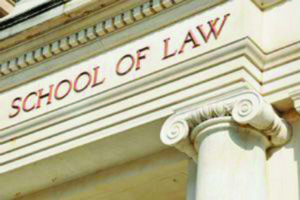A law school will be established in Guyana, Attorney General and Legal Affairs Minister, Basil Williams, has said. The Guyana Government plans to go ahead with its plans in this regard, despite several concerns having been raised relative to the process of establishing this law school. Government is now in the process of finalising a shareholders’ agreement in pursuance of this objective.
Government had, in January 2017, announced it would start a project to establish the JOF Haynes Law School of the Americas through a public-private partnership entered into between the Government, the Law School of the Americas (LCA), and the University College of the Caribbean (UCC).

Several burning concerns were brought to the fore, especially in relation to whether approval was granted by the Council for Legal Education (CLE), and whether the programme was accredited. Former Minister Anil Nandlall’s main concern is whether Guyanese would be able to practice law throughout the Caribbean.
According to Williams, a recently completed Canadian-funded study into legal education in the region has recommended the establishment of law schools in Guyana, Antigua and Jamaica. It also recommended that the CLE serve as a regulatory body, rather than one that manages the day to day affairs of law schools.
The minister said he supports these recommendations and it is now left up to the regional Governments to discuss and decide on this matter at the Caribbean Community (Caricom) level. He noted however that this study only helps to bolster Guyana’s request to have a law school established.
“We are confident that we really need a law school,” Williams told the media as he explained the recent increased tuition fees at the Hugh Wooding Law School and the difficulty of having Guyanese students live and study in Trinidad and Tobago also support Guyana’s push in this direction.
To substantiate his point, the minister said, “Tuition fees this year have been increased at Hugh Wooding and are now TT$97,000…, well over $3 million (Guyana dollars)…that’s only for tuition, they still have to live and exist in Trinidad.”
He also made the point that Trinidad and Barbados churn out at least 200 law graduates yearly, while Guyana is allowed to have only 25 or less lawyers trained on an annual basis. Williams noted that with the impending oil and gas sector, Guyana would need more trained and competent lawyers.
“…especially at this time, with how Guyana is poised…we would need lawyers to deal with oil and gas, we would need lawyers to deal with the green state and economy. So we have a lot of capacity to build.”
Williams is adamant that Guyana has not been refused permission to set up a law school. As such, preparations are being made to advance this process with the identification of space at the University of Guyana (UG) Turkeyen campus, where the proposed school would be built.
The AG has said, however, that while UG has identified 15 acres of the 150 acres that it has situated close to the area that houses the Forensic Laboratory, the amount would not be sufficient. While the CLE has agreed to establish a law school in Guyana, approval would be granted only after a feasibility study is conducted.
Williams had attacked CLE Chairman Reginald Armour for responding to the concerns raised by former Legal Affairs Minister Anil Nandlall without consulting with the current Government on the matter. He said this was one of the reasons why the establishment of this law school was delayed, and it had nothing to do with non-approval.
Williams maintains that a Review Committee could not overrule a decision taken by the Council in 2017 in regard to the issue of whether Guyana should be allowed to build a law school.
The AG had said members of Guyana’s committee included the Chancellor of the Judiciary (ag), Yonette Cummings-Edwards; Chief Justice (ag), Roxane George; Retired Justices Duke Pollard, Claudette Singh and Rudolph James; Professor Harold Lutchman, and the Registrar of UG, Dr Nigel Gravesande.
Related posts
-

Ramkarran says GECOM’s 15-day deadline to announce results “not mandatory”
The 15-day deadline referenced in the Representation of the People Act, within which the Guyana Elections... -

Linden man knifes woman and lover to death in jealous rage
A man is in Police custody after he reportedly stabbed his ex-lover and her new spouse... -

Mottley says “there are forces that do not want to see votes recounted”
Chairperson of the Caribbean Community (Caricom), Barbadian Prime Minister Mia Mottley, in a strongly-worded statement said...
